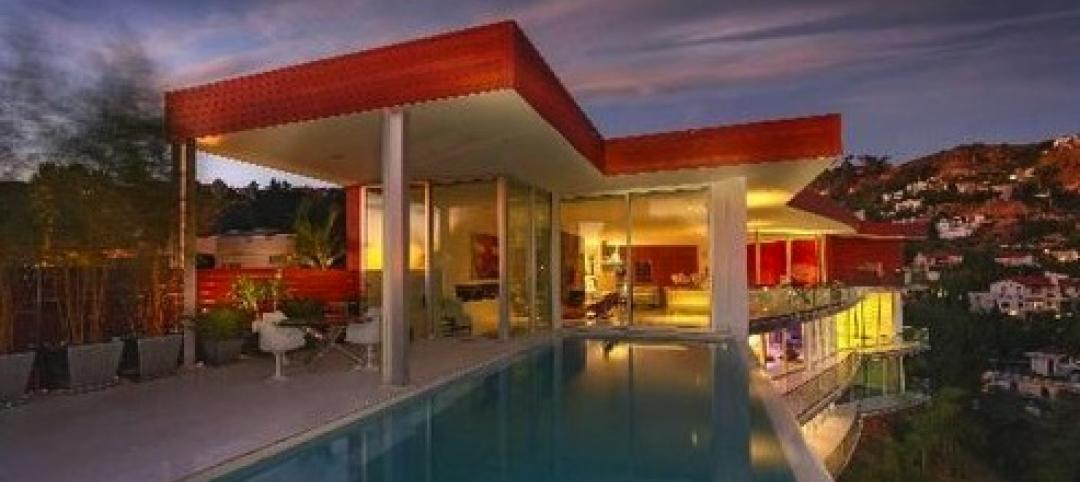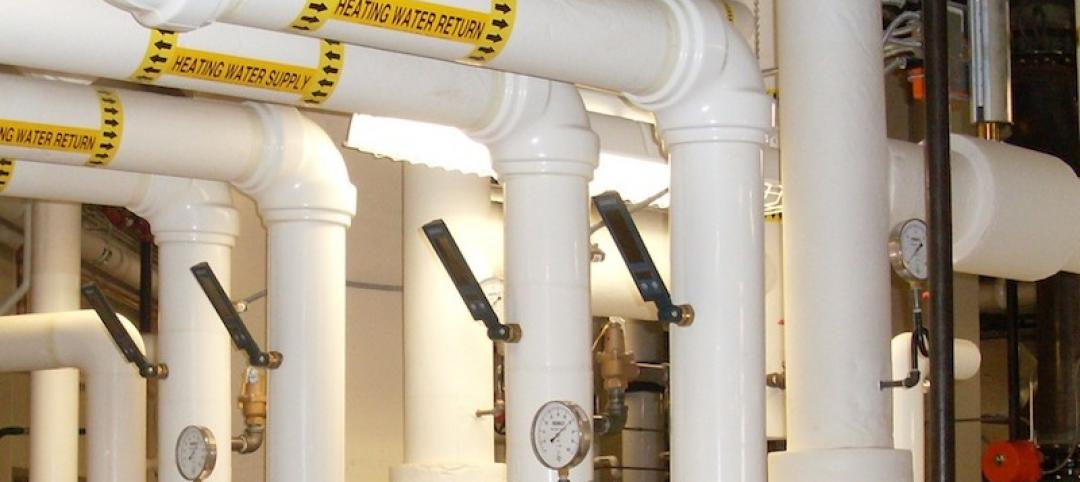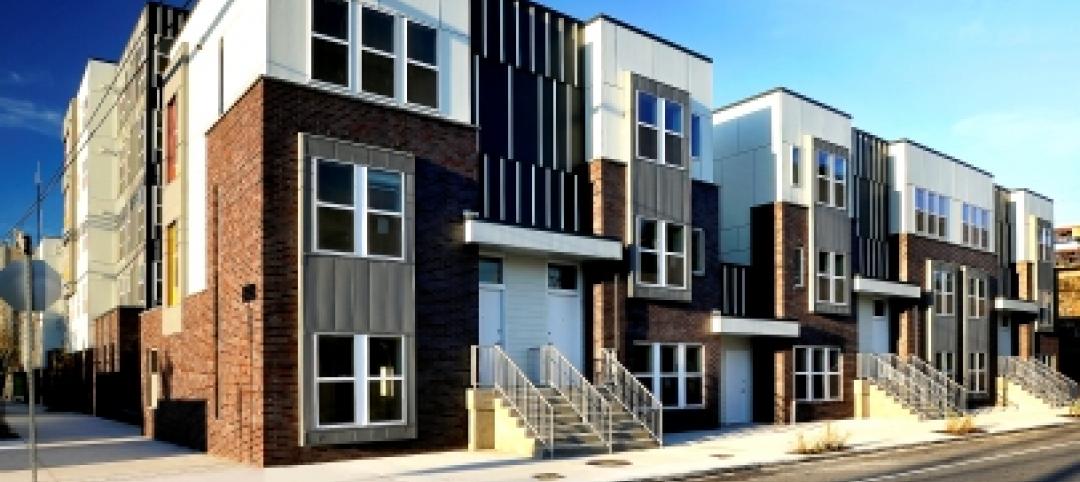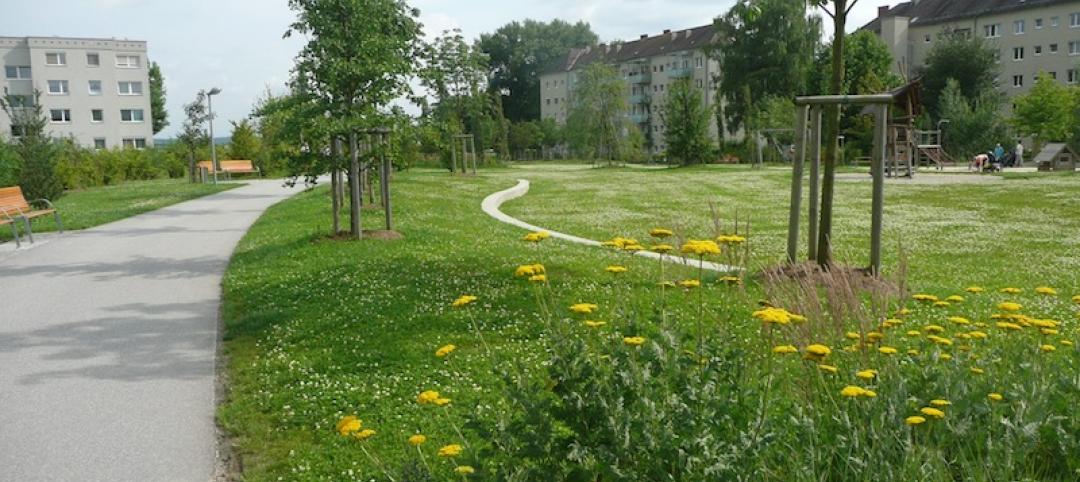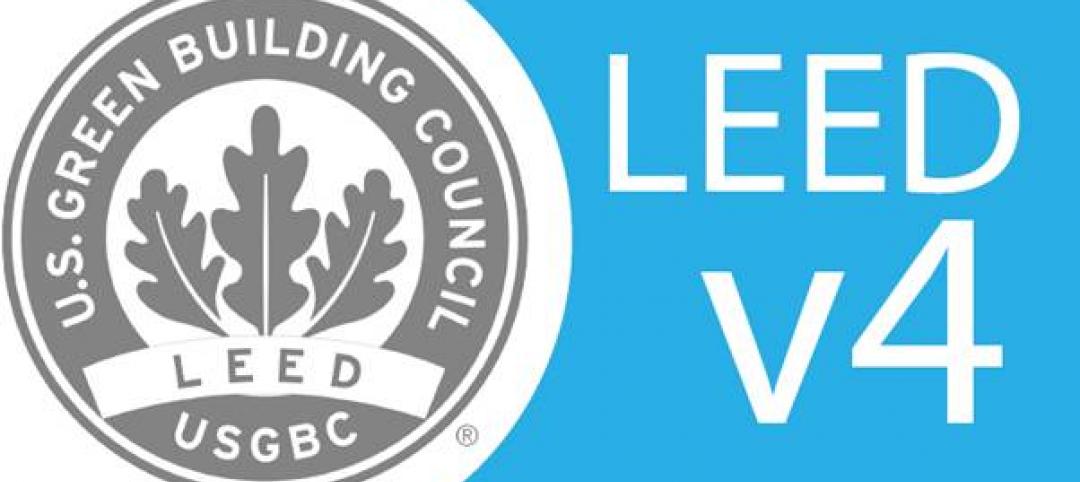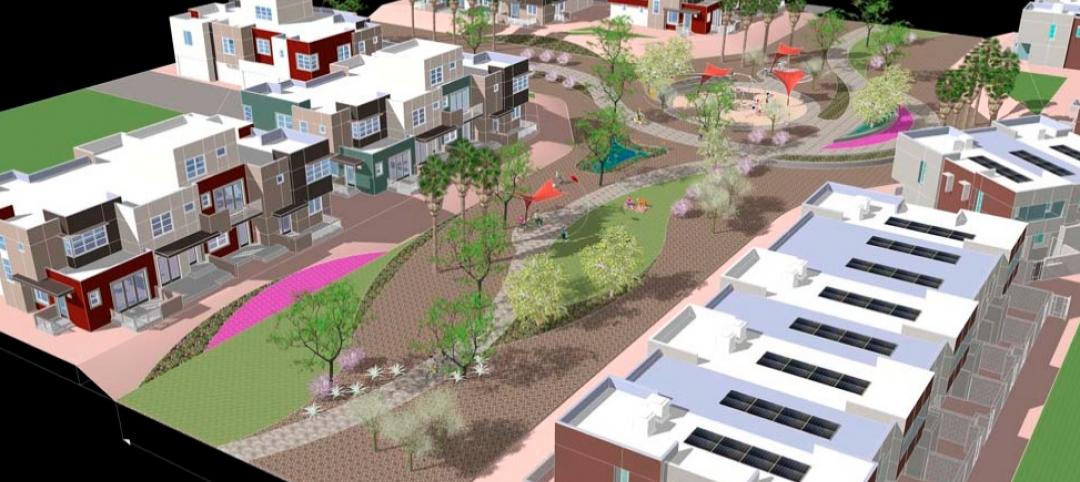Global design firm HOK has released research providing lab owners and developers guidance for reducing operational and embodied carbon to meet net zero goals.
HOK’s initial analysis indicates that it is possible to build and operate labs in accordance with the sustainable design goals of the RIBA and AIA 2030 challenges, according to the report’s executive summary. “The approaches studied in this analysis can significantly reduce the whole-life carbon (operational carbon + embodied carbon × building lifespan) of a lab building,” the document says.
Modelling revealed little difference between vertical and linear lab building forms in achieving net zero. But linear labs’ expansive roofs provide an advantage by allowing for more solar panel arrays.
The analysis examined new lab buildings, but the most sustainable option is to reuse and adapt existing buildings, HOK says. Lab buildings are significantly more energy intensive to operate than commercial office buildings and their embodied carbon also is much higher than typical commercial space. Labs demand far greater ventilation than most building types and are home to highly energy-intensive equipment that is often in operation 24 hours a day. Labs also require robust structural systems to limit building vibration and support heavy building loads.
HOK’s analysis looked at numerous strategies to reduce carbon footprint in lab structures. The report provides technical details on these approaches.
Related Stories
| Jan 8, 2014
Architect sentenced to a year in jail for firefighter's death
Architect Gerhard Becker was sentenced to a year in LA county jail after pleading no contest to the manslaughter of a firefighter who died while trying to contain a fire in a home the architect had designed for himself.
| Jan 8, 2014
United Association, NRDC seek major plumbing code changes
Proposed changes include mandating the insulation of hot water piping in new buildings.
| Jan 2, 2014
EPA move to assert oversight on small bodies of water among top regulatory battles for 2014
The EPA has started the process of declaring that it has the power to regulate streams, brooks, and small ponds.
| Jan 2, 2014
Paseo Verde in Philadelphia is nation’s first LEED Platinum neighborhood development
Paseo Verde, a mixed-use, mixed-income community hosted a ribbon cutting ceremony last month.
| Jan 2, 2014
Green infrastructure prominent in Akron, Ohio's sewer plans
City officials in Akron, Ohio want to prevent stormwater from entering its combined sewer system through the use of green infrastructure.
| Jan 2, 2014
OSHA to hold public meeting on proposed rule to improve tracking of workplace injuries
The Occupational Safety and Health Administration (OSHA) has scheduled a public meeting to allow interested parties to comment on the proposed rule to improve tracking of workplace injuries and illnesses.
| Jan 2, 2014
Measuring whole building energy use among big changes in LEED v4
A new prerequisite in LEED v4 calls for each project to measure whole building energy use, and then share that data with USGBC.
| Jan 1, 2014
San Francisco hosts Net Positive Energy + Water Conference
The Living Building Challenge’s Net Positive Energy + Water Conference will be held Feb. 4-5 in San Francisco.
| Dec 27, 2013
California’s new Title 24 energy code compliance date pushed back to July 1, 2014
Due to the stringency of the provisions in California’s new Title 24 energy codes, their implementation has been postponed until July 1, 2014 to allow jurisdictions and engineers to prepare for them.
| Dec 27, 2013
$1 billion 'city within a city' development approved by Coachella, Calif., city council
The mega development includes 7,800 homes, a retail center, office space, and nearly 350 acres of open space.



